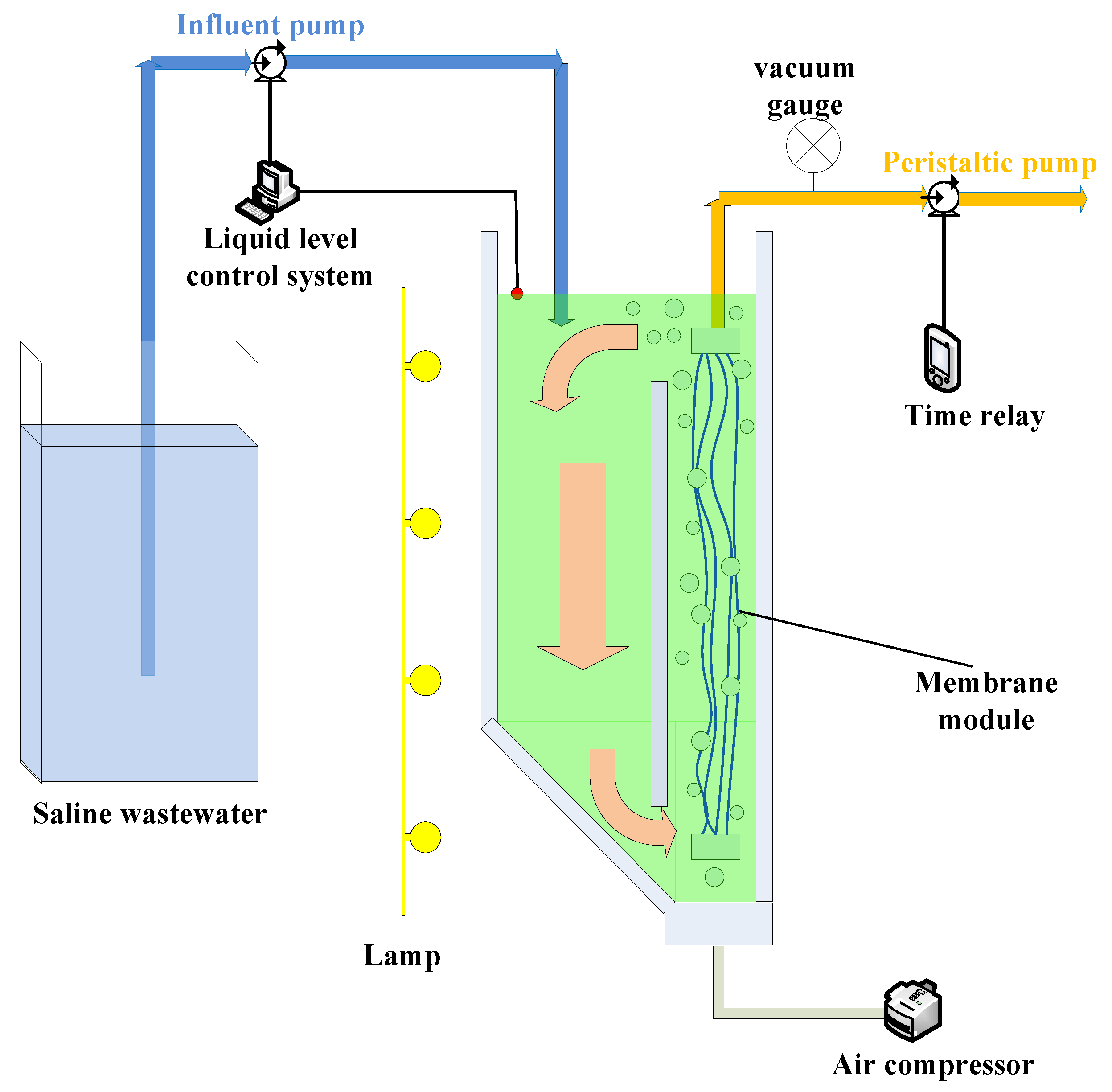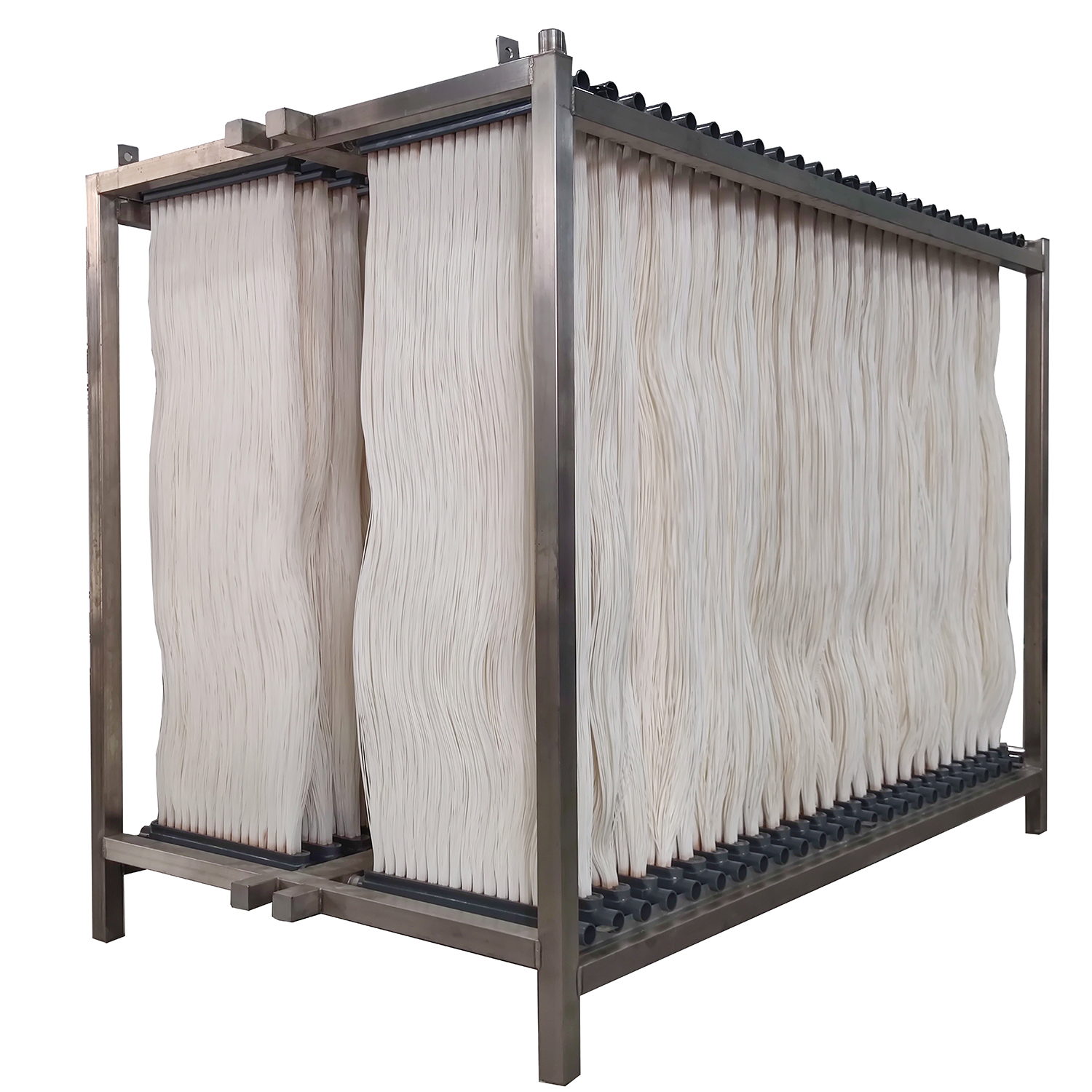How Membrane Bioreactor Can Help Meet Stringent Environmental Regulations
How Membrane Bioreactor Can Help Meet Stringent Environmental Regulations
Blog Article
The Advantages of Membrane Bioreactors in Lasting Wastewater Administration
Membrane layer bioreactors (MBRs) represent a crucial improvement in lasting wastewater administration, properly merging organic treatment with advanced membrane layer filtering modern technology. This integration not just enhances effluent high quality by successfully removing pollutants but likewise opens up methods for water reuse in different applications, hence addressing the pressing demand for source conservation. The portable design of MBRs contributes to considerable decreases in ecological influence and operational costs. As the demand for sustainable options intensifies, checking out the diverse advantages of MBRs might disclose unexpected implications for the future of wastewater treatment systems.
Summary of Membrane Layer Bioreactors
Membrane bioreactors (MBRs) stand for a considerable advancement in wastewater treatment technology, incorporating biological deterioration with membrane filtering to boost the effectiveness of the therapy process. This cutting-edge system integrates the benefits of standard activated sludge processes with membrane technology, enabling boosted solid-liquid separation. MBRs make use of semi-permeable membranes to separate cured water from biomass, causing top notch effluent that can be reused or securely discharged into the setting.
The operational style of MBRs usually involves a bioreactor where bacteria damage down raw material, complied with by a membrane system that filterings system the mixed liquor. This arrangement not just decreases the footprint of the treatment center however likewise enables for greater biomass concentrations and minimized hydraulic retention times. Moreover, MBRs can treating a larger range of contaminants, including virus and nutrients, making them suitable for various applications, from metropolitan wastewater treatment to commercial effluent handling.
The combination of MBRs into wastewater management systems is indicative of an expanding trend in the direction of lasting and reliable techniques in ecological design. Their capacity to create top quality effluent while reducing room demands positions MBR innovation as a key gamer in modern-day wastewater therapy options.
Improved Effluent Top Quality

The membrane layer filtration process functions as a physical obstacle, allowing the retention of bacteria and particulate issue, which adds to a more clear and cleaner effluent (Membrane Bioreactor). MBRs run at greater biomass concentrations than traditional triggered sludge systems, advertising much more reliable biodegradation of pollutants. This causes a reduction in biochemical oxygen demand (BOD) and total suspended solids (TSS) degrees in the final effluent
In addition, MBRs show superb efficiency in treating tough wastewater structures, such as industrial effluents and wastewater with high nutrient tons. Consequently, the effluent created is typically of better, allowing for even more adaptable disposal choices and minimized ecological influence. Ultimately, the improved effluent top quality achieved through MBR modern technology highlights its crucial duty beforehand lasting wastewater monitoring practices.
Water Reuse Opportunities
The top quality effluent created by membrane layer bioreactors (MBRs) opens significant chances for water reuse in numerous applications. MBRs properly remove pollutants, including virus, suspended solids, and natural matter, leading to cured water that meets or goes beyond regulative standards for reuse. This high quality permits the implementation of water reusing efforts throughout diverse markets.
One famous application remains in agriculture, where treated wastewater can be utilized for irrigation, advertising lasting farming methods while conserving freshwater resources. Furthermore, MBR-treated effluent can be used for commercial procedures such as cooling, cleaning, and as a procedure water resource, considerably reducing the need for drinkable water in these operations.
In city atmospheres, MBRs promote using reclaimed water for landscape irrigation, toilet flushing, and other non-potable uses, adding to the total resilience of supply of water systems. The integration of MBR innovation in decentralized systems help in managing localized water needs, specifically in water-scarce regions.
Lowered Environmental Influence
Just how can the adoption of membrane layer bioreactors (MBRs) contribute to a lowered environmental impact in wastewater administration? MBRs significantly boost the therapy effectiveness of wastewater while lessening ecological disruptions. Membrane Bioreactor.
Moreover, MBRs operate at reduced hydraulic retention times contrasted to traditional systems, resulting in smaller therapy plant impacts. This compact layout decreases land use, thereby maintaining natural habitats and biodiversity. The procedure likewise creates much less sludge than typical methods, minimizing disposal challenges and decreasing greenhouse gas discharges connected with sludge administration.
In addition, MBRs promote the recuperation of important sources, such as water and nutrients, adding to a round economic climate. By enabling water reuse for watering or industrial processes, MBRs aid reduce freshwater shortage, thus site web promoting sustainable water use methods. Eventually, the adoption of MBR technology represents a substantial stride towards minimizing the ecological effect of wastewater monitoring systems.
Financial Benefits of MBRs

In addition, MBRs facilitate the manufacturing of high-grade effluent, which can be reused for various applications, such as agricultural irrigation and commercial processes - Membrane Bioreactor. This reuse capacity can substantially lower water purchase costs, giving an economic motivation for sectors facing strict water regulations
The small layout of MBR systems also results in reduced land demands, which is particularly beneficial in metropolitan locations where genuine estate is pricey. By minimizing space, districts and industries can reduce land purchase and maintenance expenditures.
Additionally, MBRs frequently call for much less regular maintenance and have a longer lifespan than traditional systems, better adding to cost savings. In recap, the economic benefits of MBRs-- ranging from lowered functional costs to land financial savings and effluent reuse-- make them an engaging selection for sustainable wastewater management, providing both immediate and long-lasting financial benefits.
Final Thought
Furthermore, MBRs add to lowered environmental impacts through small layouts and lower sludge generation. Economic benefits additionally improve their stability, making MBRs a promising option for resolving the difficulties of wastewater therapy and advertising sustainable source monitoring.
Membrane bioreactors (MBRs) represent an have a peek at these guys essential improvement in lasting wastewater management, successfully merging biological therapy with sophisticated membrane filtration technology.Membrane layer bioreactors (MBRs) represent a considerable advancement in wastewater treatment technology, integrating organic degradation with membrane layer filtration to improve the effectiveness of the treatment procedure.Accomplishing boosted effluent quality is one of the most considerable advantages of utilizing membrane layer bioreactors (MBRs) in wastewater therapy.In addition, MBRs show excellent performance in dealing with tough wastewater compositions, such as commercial effluents and wastewater with high nutrient loads.Incorporating membrane layer bioreactors (MBRs) into wastewater monitoring not only minimizes ecological effect but additionally provides significant financial advantages.
Report this page